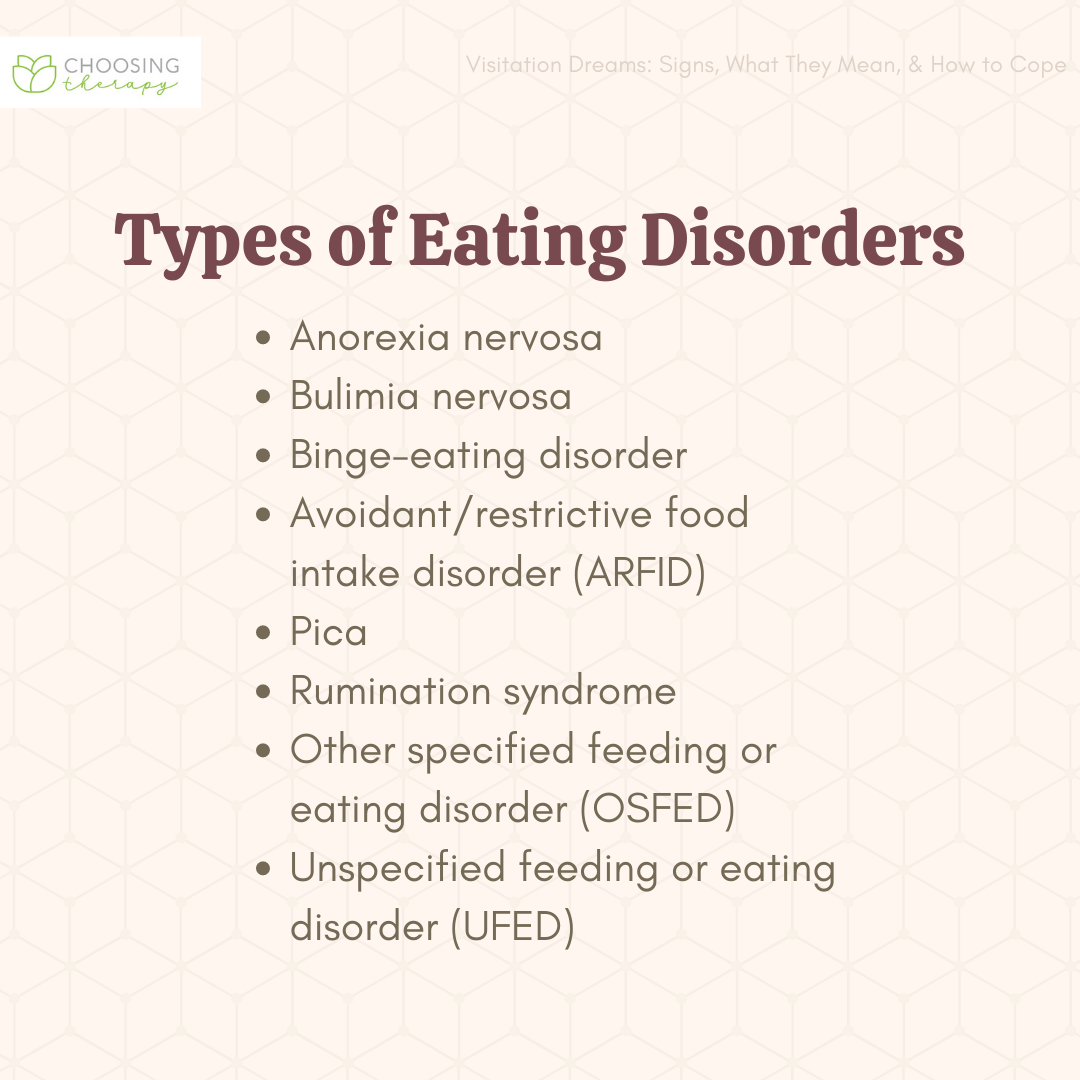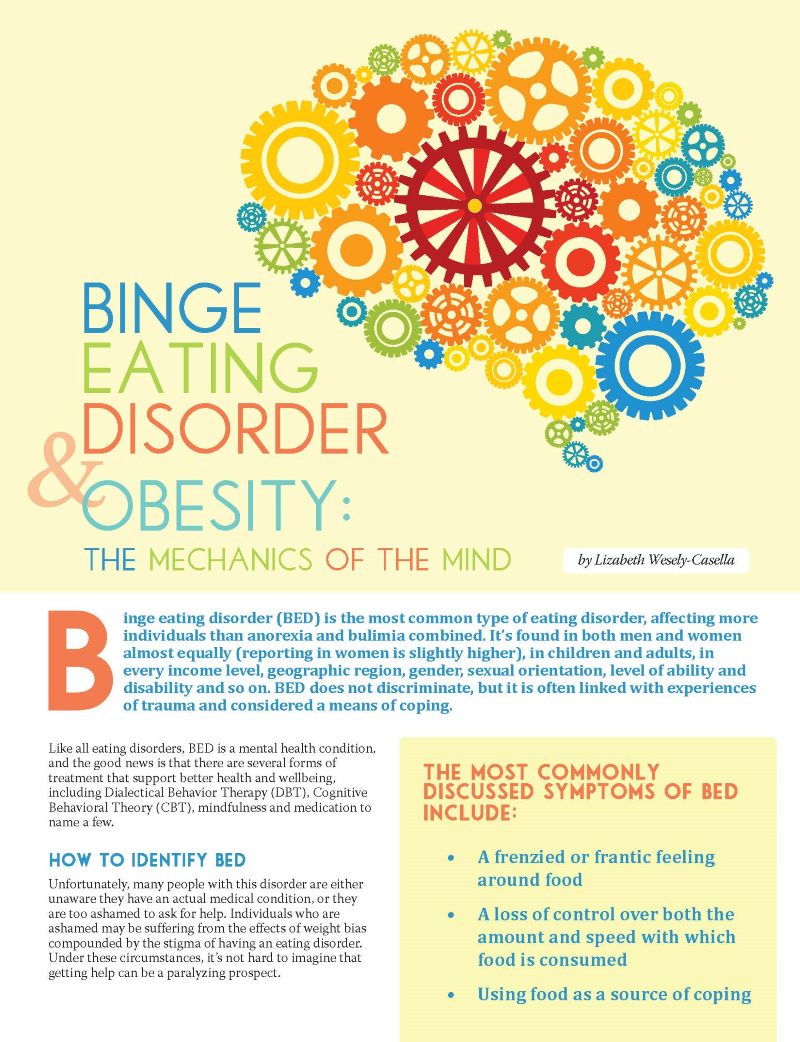Rumored Buzz on Eating Disorder Recovery
Wiki Article
What Does Eating Disorder Recovery Mean?
Table of Contents4 Simple Techniques For Eating Disorder RecoveryAn Unbiased View of Eating Disorder Recovery9 Easy Facts About Eating Disorder Recovery ExplainedThe Buzz on Eating Disorder RecoveryEating Disorder Recovery for Beginners

Orthorexia is a kind of eating problem, still unacknowledged in the DSM, where a person becomes obsessed with "healthy eating." While many individuals make a point to be familiar with the active ingredients and also sourcing of their food, orthorexia can become damaging to the individual's health and wellness. Orthorexia creates people to identify details food or food groups as "correct," "healthy and balanced," or "pure." Ultimately, particular foods or whole teams are eliminated from the person's diet; they could also begin to consume over the active ingredients in their foods, investing hours every day planning meals (eating disorder recovery).
Food components may also become the individual's only subject of discussion. Health and wellness repercussions might consist of a variety of gastrointestinal and also dietary discrepancies. It can likewise create a lot of the same wellness dangers as anorexia, as the person's calorie intake may be significantly limited. Orthorexia is also a typical co-occurring condition connected with OCD.
Eating Disorder Recovery Things To Know Before You Buy
With this condition, an individual will purely prevent certain foods to the detriment of their wellness - eating disorder recovery. Unlike orthorexia, however, the avoidance of particular foods isn't driven by concepts of the food's healthfulness or purity, yet rather by a severe aversion to the food's taste, appearance, or smell (although problems concerning putridity or gastrointestinal disorder might also be present).Over time, increasingly more foods end up being untenable, resulting in an extremely minimal scheme of appropriate foods. Formerly called careful eating problem, ARFID frequently starts in childhood and progressively gets worse in time. It's relatively typical for kids to be "particular eaters" and everyone has choices of what they eat, yet if it ends up being uncontrollable and damaging to an individual's health, it requires a check-in with an eating disorder treatment expert.
Also like orthorexia, an adverse or distorted body photo is not always a reason for the problem. ARFID is typically dealt with using talk treatment and cognitive re-training such as Cognitive Behavior Modification (CBT). Unlike many eating disorders which normally first existing during adolescence, rumination disorder is most common in early stage and very early youth, although it can linger into the adult years.
The Single Strategy To Use For Eating Disorder Recovery
Typically, they do not experience stress or disgust when spewing, nor do they show up to make an effort to throw up (as seen in bulimia nervosa). Rumination condition is commonly a response to an unreasonable concern of ailment triggered by consuming, although its reasons are much less well-understood than other eating conditions.

Orthorexia is a type of consuming condition, still unknown in the try this out DSM, in which an individual becomes stressed with "healthy and balanced consuming." While lots of people emphasize to be familiar with the components and also sourcing of their food, orthorexia can come to be destructive to the individual's health. Orthorexia creates individuals to identify details food or food teams as "appropriate," "healthy and balanced," or "pure." navigate to this site Eventually, particular foods or whole groups are eliminated from the person's diet; they might additionally begin to obsess over the ingredients in their foods, spending hours daily planning dishes.
Some Known Facts About Eating Disorder Recovery.
:max_bytes(150000):strip_icc()/eating-disorder-5200354-DD-Final-c0a1c0ab5fcf4ddbb2457a87b3acfd8f.jpg)
With this condition, an individual will purely avoid certain foods to the detriment of their health and wellness. Unlike orthorexia, nonetheless, the avoidance of specific foods isn't driven by ideas of the food's healthfulness or purity, however instead by a severe hostility to the food's taste, structure, or odor (although issues regarding putridity or food poisoning might likewise exist).
Gradually, more and more foods end up being untenable, bring about a very minimal palette of appropriate foods. Formerly known as selective eating disorder, ARFID commonly begins in childhood and progressively gets worse over time. It's relatively usual for kids to be "choosy eaters" as well as every person has preferences for what they eat, however if it ends up being compulsive as well as harmful to an individual's health and wellness, it warrants a check-in with an eating disorder treatment specialist.
The Best Guide To Eating Disorder Recovery
Likewise like orthorexia, an unfavorable or distorted body picture is not necessarily a reason for the disorder. ARFID is typically dealt with using talk therapy as well as cognitive retraining such as Cognitive Behavior Therapy (CBT). Unlike the majority of eating disorders which usually first present during adolescence, rumination disorder is most typical in early stage and early youth, although it can linger right into adulthood.Normally, they do not experience tension or disgust when spitting up, nor do they show up to make an effort to vomit (as seen in bulimia nervosa). Rumination condition is frequently a reaction to an irrational fear of illness brought on by consuming, although read here its reasons are much less well-understood than other eating problems.
Rumination problem is provided in the DSM-V. Diabulimia is detailed as one of the several unspecified consuming disorders under the catchall term OSFED (Various other Specified Feeding r Consuming Disorder).
Report this wiki page